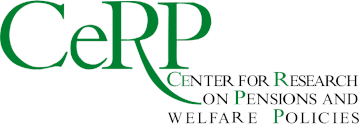by Adriaan Kalwij (Utrecht University); 7 September 2016, h 12:45 @ Collegio Carlo Alberto
Abstract
This paper estimates the short term impact of a 90-minutes financial education program on financial literacy at Dutch primary schools using a controlled field experiment. We find that of the improvements in pupils’ financial literacy between pre-and posttests about two-thirds can be attributed to the pretest itself and about one-third to the financial education program. Of this one-third the important improvements are on two questions that are explicitly dealt with during the program. We also find that the program changes saving behavior and makes pupils more likely to save for something they want to buy. Pupils do not improve on financial literacy questions that are only indirectly dealt with during the program. These findings suggest that it is difficult for pupils aged 10 to 12 to use the financial literacy skills educated on during the program in different contexts and that financial education is likely to be most effective when focused on specific financial decisions that are important in daily life.
Please confirm participation to Chiara Girotti <chiara.girotti@carloalberto.org>

